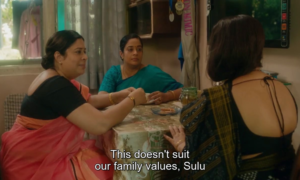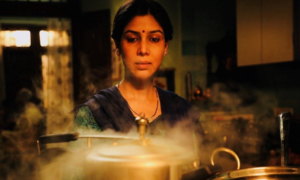In psychology, there is a famous experiment by Overmier and Seligman in 1967 where they exposed dogs to inescapable shock. The animals struggled a lot in the beginning, their screams filling the room. But eventually, they gave up. When they tried to perform the experiment in other situations where the animals could just press a lever to stop the shock at once, the animals didn’t.
This was learned helplessness!
In an Indian household, a woman is in-charge of everything, from the food, to the children, to the chores, while men have an attitude of someone standing in a luxury showroom picking what they like (or nothing at all) when it comes to responsibilities. Women eat last, women serve, women give up everything to make sure others live a comfortable life. But why? Is it a martyr complex? Or is it innate? Is it learned?
Familiarity can often make you confused as to what is right and what is just something you’re used to seeing. And that’s all this is. A way things are done, “aisa hi hota hai”, a tainted history of putting women first in the line of fire, and last in the line of respect for no reason other than repetition. And it is time to change that. Starting with us.

Understanding how our past has treated women would be the first step.
The history of these practices can be understood from ancient legal texts like Manusmriti, a codex on how society, particularly women and lower castes, should be like. The actual author of the text is not confirmed, but this fact has not deterred this text from becoming something akin to word of god, even in today’s world, with quotes like:
“He shall employ her in the accumulation and disbursement of wealth, as also in cleanliness, in religious acts, in the cooking of food and in taking care of the household furniture.” (Manusmriti Chapter 9 (11))
or
“Her father protects (her) in childhood, her husband protects (her) in youth, and her sons protect (her) in old age; a woman is never fit for independence.” (Manusmriti Chapter 9 (3))
Women, of varying abilities and personalities, just like any man, are generalized as wafer thin beings. They are capable of handling the entire house from cooking to cleaning, bearing a child and all the repercussions on the mental and physical health that come with it, and catering to every whim of the man of the house. But they can’t handle eating first, getting an education, or protecting herself in any situation of discomfort she might encounter because of another man most likely. Make it make sense!

Not only are these “rules” unfounded, but are also not a depiction of reality by any means. The Khasi tribe in Meghalaya, India, a matriarchal (women-led) society, is thriving economically, environmentally, and socially. And not limited to our own country, the Mosuo women of China, Umoja tribe in Kenya, Minangkabau in Indonesia are a few noteworthy examples of successful societies dominated by women. There is no proof or basis of putting women behind men, classifying them as a second citizen, or asking them to cover up from head to toe, forbidden to study, to work, to exist.
Even if, hypothetically, the past was corrupted with prejudices and there was no proof of any equality for women before us anywhere in the world, it doesn’t have to mean that the future remains the same.

We have to start making the world a better place for women now.
Thinking of women as, hold onto your hats and pearls, as another human being might be a good start. A man, for a lack of a better example, who might’ve worked for hours in the morning to prepare a meal for the family would not be violating any rules when wanting to be fed first. He would not be expected to adjust to the living standards, and expectations, of the woman’s family after marriage. A man would not experience a gap in the wage for the same workload as his peers, and then also be expected to give up his career to take care of his family once children came into the picture.

Studies have shown that women all over the world spend thrice the time on unpaid household work compared to men, starting as early as six years of age, and do nearly double the amount of work when comparing married women to unmarried men. As per a survey, Indian women spend ten times as much time as men on unpaid household chores. That’s akin to 10%-60% of contribution to the GDP globally, for all the economy buffs.
And this isn’t to say that the tasks that are the ‘duty’ of a woman are in any way lower in the hierarchy of importance. Knowing how to take care of your own house, cook healthy meals for yourself and your family, and ensuring every member is well taken care of, are remarkable and respected qualities to have in anyone. Care is needed, and should be given by everyone, not just women.

So, here are a few things you need to do to start breaking the cycle…
Firstly, not just educating women, but also encouraging them to speak up, questioning why a practice exists is important. We need to ask and deserve to know who is really benefiting from it, while not making the jump to a completely different reality. And it cannot be done without men speaking up as our ally either. They are the ones being listened to after all.
Secondly, Unlearn the helplessness, and know there are ways to escape. Turning “aisa hi hota hai” to “ab aisa nahi hoga.” There are no rules beyond humanity and kindness that bind you or your limits. Any and every woman is entitled to, deserving of, and capable of receiving every opportunity out there, from basic resources such as food and shelter to the most stellar positions and platforms.

At the end, all that is needed is that this responsibility is taken on by everyone in the society. A responsibility to know and understand that both genders need to be right next to each other, not above or below, with equal chances and equal space.
Also Read: Here are 7 Safe and Scenic Indian Destinations for Solo Women Travelers
